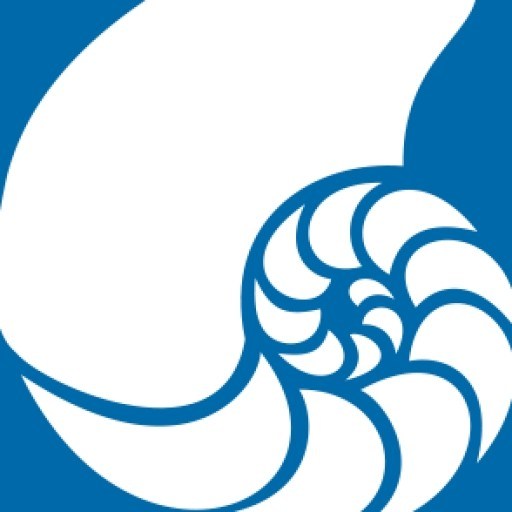Photos of university / #waldenuniversity
The Education—Mixed-Model (Global and Comparative Education) program at Walden University is designed to prepare education professionals to address complex global challenges and foster cross-cultural understanding in diverse educational settings. This innovative program combines theoretical frameworks with practical applications, equipping students with the skills needed to analyze educational systems worldwide and develop effective solutions for improving educational quality and equity. Through a comprehensive curriculum, learners explore topics such as international education policies, multicultural curriculum development, educational leadership in a global context, and strategies for implementing change across different cultural and institutional environments. The program emphasizes a flexible, mixed-model format that integrates online coursework with optional synchronous sessions, allowing students to balance their studies with personal and professional commitments. Faculty members are experienced educators with backgrounds in international education, policy analysis, and intercultural communication, providing expert guidance throughout the program. Graduates will be prepared to work in a variety of roles, including policy analysts, educational consultants, program coordinators, and administrators in international organizations, government agencies, non-profit sectors, and educational institutions. The program also fosters critical thinking, research skills, and intercultural competency—essential attributes for leading educational initiatives in an increasingly interconnected world. By completing this program, students will gain a deep understanding of global educational trends, the ability to compare and contrast different educational models, and the skills to develop innovative strategies that promote inclusive and equitable education worldwide. Whether aspiring to influence education policy or improve educational practices across borders, students will find this program offering the knowledge and tools to make a meaningful impact on global education initiatives.
Contents
Completion Requirements
- 96 total quarter credits
- Foundations courses (12 cr.)
- Core courses (24 cr.)
- Specialized KAMs (24 cr.)
- Research sequence (16 cr.)
- Proposal, dissertation, and oral presentations (20 cr.)
- Four Ph.D. residencies to equal a minimum of 16 units
- ePortfolio
Time to completion may vary by student, depending on individual progress and credits transferred, if applicable.
Lecturers
Waldens Richard W. Riley College of Education and Leadership features a distinguished faculty of scholars, researchers, and professionals with real-world experience who share a commitment to teaching. Faculty members blend academic theory with firsthand knowledge to enrich your learning experience and to broaden your perspectives on the latest issues and best practices in the field.Program Requirements:
The Education — Mixed-Model (Global and Comparative Education) master's degree program at Walden University is designed to provide students with comprehensive knowledge and practical skills necessary to analyze, develop, and improve educational systems across diverse cultural and international contexts. To successfully complete this program, students are typically required to fulfill a set of academic and practical criteria that ensure a thorough understanding of global educational issues and innovative solutions.
Initially, students must complete a minimum of 60 postgraduate semester credits, which include core coursework, specialization courses, and elective options. The curriculum emphasizes foundational theories of education, research methodologies, policy analysis, and leadership in educational settings. Students are expected to engage actively in coursework that encourages critical thinking, cross-cultural awareness, and evidence-based decision-making.
A significant component of the program involves a capstone project or comprehensive examination, designed to demonstrate mastery of the subject matter and the ability to apply theoretical frameworks to real-world challenges. Throughout the program, students are encouraged to participate in interactive seminars, research projects, and collaborative activities that foster a global perspective and cultural sensitivity.
In addition to coursework and projects, students must meet specific practicum or field experience requirements, which may include internships, field research, or collaboration with educational organizations internationally. These practical components are integral in providing hands-on experience and fostering connections within the global education community.
Admission criteria typically require applicants to hold a bachelor's degree from an accredited institution, along with relevant professional experience in education or related fields. International students might need to demonstrate proficiency in English through standardized tests such as the TOEFL or IELTS. Applicants are often evaluated based on their academic history, professional background, and motivation for pursuing the program.
Overall, program completion necessitates active participation, successful completion of all courses and projects, and adherence to Walden University's academic policies. Graduates of the program are equipped to assume leadership roles in educational policy, administration, research, and advocacy on a global scale, contributing to the improvement of educational systems around the world.
The Education — Mixed-Model (Global and Comparative Education) program at Walden University offers a variety of financing options to support students throughout their academic journey. Tuition fees are structured to provide flexibility and transparency, with current estimates available on the university's official website. Students can access federal student aid programs, including federal grants, loans, and work-study opportunities, subject to eligibility requirements. Walden University also offers institutional scholarships and financial aid packages designed to assist students who demonstrate financial need or academic merit. These scholarships often have specific eligibility criteria and application processes, which students are encouraged to review well in advance of enrollment. Furthermore, the university provides payment plan options, allowing students to spread their tuition payments over multiple installments, thereby reducing immediate financial burdens.
Additionally, students may explore private loan options from external lenders for supplemental funding. It is recommended that students carefully review the terms and interest rates associated with these loans to make informed financial decisions. Walden University often hosts financial literacy workshops and provides resources to help students understand their financing options, manage their debt responsibly, and plan for successful repayment strategies. International students, in particular, should contact the admissions office for advice about obtaining international student loans or other financial assistance suitable for their circumstances.
Given that the program can be completed either online or through a hybrid format, students may also consider part-time enrollment, which can potentially lower immediate tuition costs and allow greater flexibility for working professionals. The university’s dedicated financial aid counselors are available to assist students in navigating the application process for various funding sources, ensuring they have access to the resources needed to finance their education. In conclusion, Walden University’s Financing Studies options are designed to provide accessible, flexible, and comprehensive financial support, empowering students to focus on their academic and professional development in the field of global and comparative education.
The Education — Mixed-Model (Global and Comparative Education) program at Walden University is designed for education professionals seeking to expand their understanding of educational systems, policies, and practices across diverse cultural and national contexts. This program emphasizes an interdisciplinary approach, integrating theories and methods from various fields to provide a comprehensive understanding of global education issues. Students engage with topics such as educational leadership, policy analysis, multicultural education, and international development, preparing them to address complex educational challenges in a globalized world. The curriculum is structured to offer flexibility for working professionals, with online coursework that allows students to balance their studies with their careers. Throughout the program, students are encouraged to develop critical thinking skills, cultural competence, and research methodologies necessary for conducting meaningful comparative studies. Faculty members are experienced scholars and practitioners with backgrounds in international education, policy analysis, and research. The program aims to equip graduates with the knowledge and skills needed to influence educational policy, design effective educational programs, and contribute to the advancement of academic research in global and comparative education. Graduates of this program often pursue careers in international organizations, government agencies, NGOs, research institutions, and educational consulting firms. They may also engage in academic research, policy advocacy, or leadership roles within their own educational contexts. The program emphasizes applied learning, encouraging students to undertake practical projects and research that address real-world educational issues. Overall, the Education — Mixed-Model (Global and Comparative Education) at Walden University offers a rigorous and flexible pathway for education professionals seeking to make a difference in educational systems worldwide through scholarship, leadership, and innovative practices.






